Blog Post

How Colleges Can Promote Equity to Support Low-Income Students
An advanced degree helps low-income working students gain financial stability. A new report explores how colleges can support their success.
Developed by the Casey Foundation, the Center for Working Families model helps low-income individuals and families get on a path to financial stability. Key to the approach is the coordination of key services at single, convenient locations, making these resources more accessible to individuals and families needing assistance. Funders and organizations throughout the country took up and adapted this approach, forming the Working Families Success Network in 2013.

An advanced degree helps low-income working students gain financial stability. A new report explores how colleges can support their success.
Report
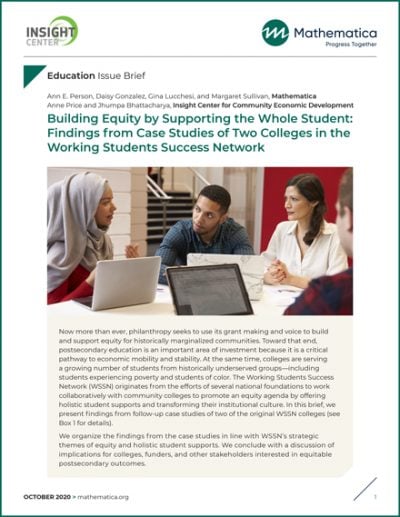
This report focuses on two community colleges and their efforts to build and support equity for students from historically underserved groups. Both institutions were part of the Working Students Success Network, a broader effort — spanning 19 colleges in four states — aimed at providing pathways and integrated services to help low-income working students succeed.
Report
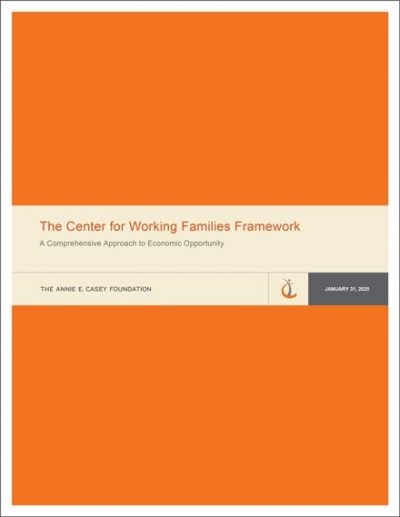
This report discusses the evolution and impact of the Annie E. Casey Foundation’s Center for Working Families framework, which is an integrated service delivery approach designed to help low-income families achieve financial security.

A report explores Casey’s Center for Working Families framework, which helps low-income families gain financial security through jobs and education.
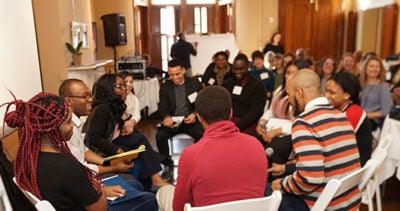
Young parents face a host of challenges in their daily lives, from securing adequate child care to advancing their education or landing jobs that can sustain their families, according to a Casey-funded study.
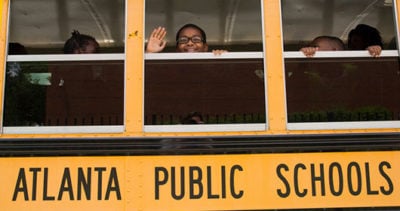
Atlanta’s Dunbar Learning Complex is advancing an ambitious mission: To prepare children for kindergarten and have their health needs met while also helping parents secure family-supporting jobs and financially stability. And a new Annie E. Casey Foundation report — Helping Children and Parents Succeed Together — suggests that the complex is on the right track.

Enrollment is now open for the Construction Ready program in Atlanta. This free, four-week program is offered to low-income residents to help them develop the necessary skills, tools and supports to secure employment in the city's construction industry.
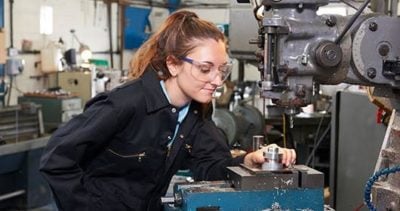
In today’s economy, achieving financial stability often requires all available parents to work. To this end, we must ensure that child care is affordable and that parents can earn family supporting wages.
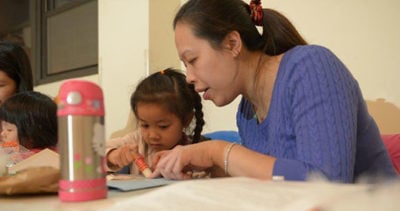
An Aug. 9 Foundation webinar will highlight a new tool that helps nonprofits and schools better engage parents in their work and develop parent leaders.
Newsletter
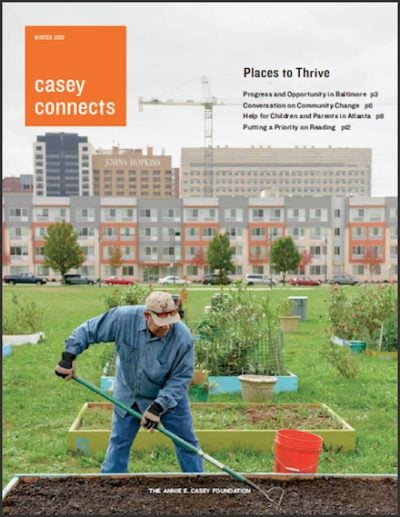
This issue of Casey Connects highlights how the Foundation is advancing two-generation strategies to achieve positive community change. It looks at large-scale, long-term efforts to break the cycle of poverty in Baltimore and Atlanta. It also tells how schools, families and communities across the country are working together to help third graders hit key reading milestones.